Welcome to the 29 awesome new readers who joined in the past 2 weeks!
If you haven’t subscribed, join 2,333 smart, curious people interested in Changing Greece.
🛜 The internet in Greece
Let’s face it.
Greece and internet do not make up for the best marriage of words.
Almost every Greek has had an unpleasant experience with their internet provider.
Internet service in Greece is ubiquitous but also slow, expensive and of low quality.
But how bad is the internet situation actually in Greece?
Here are the facts.
The “Big Three”
Greece has 3 big mobile networks — aka Mobile Network Operators (MNOs): Cosmote, Vodafone and Nova. Following market consolidation over the years, these also constitute the main Internet Service Providers (ISPs) in the country today.
These three companies supply mobile, internet, TV and auxiliary services to the vast majority of Greek consumers.
There are other smaller internet providers, such as Inalan (in both Athens and Thessaloniki) and HCN (in Thessaloniki), but still have a tiny piece of the market.
To make better sense of the Greek internet market, we will look at 4 key areas:
Coverage
Speed
Price
Quality
Coverage
Greece has made a big digital leap over the past decade.
Internet penetration has improved and Greece has finally closed the gap with the EU.
However, there is still a difference between fixed and mobile broadband connections.
Greece is 5th from the top in the EU in terms of fixed broadband penetration.
Greece is 4th from the bottom in the EU in terms of mobile broadband penetration.
If we look at the top provider (Cosmote), here is how things look for their network in terms of their coverage (left map) and bitrates offered (right map).
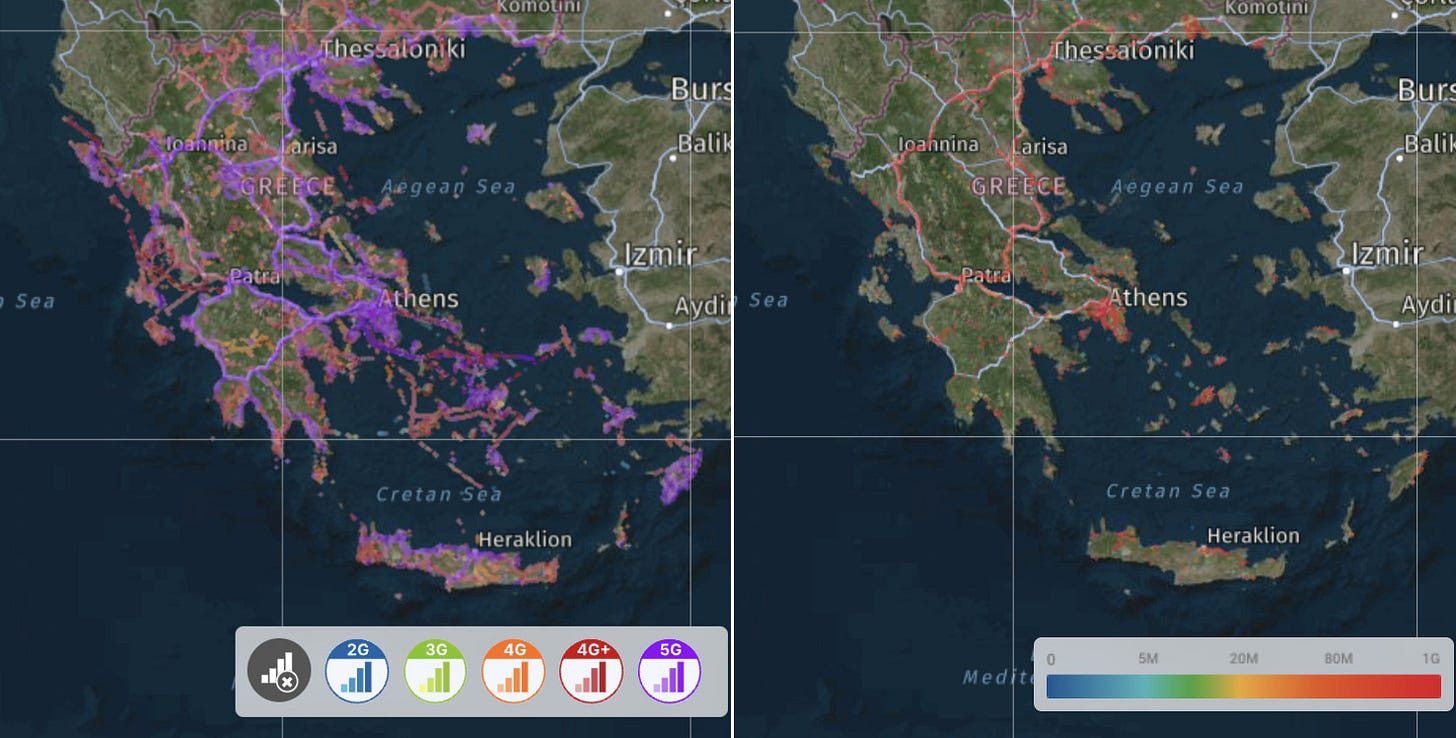
What about the prevalence of higher broadband internet?
Fiber-to-the-Home (FTTH) coverage — internet technology that uses fiber-optic cables to deliver high-speed broadband connectivity directly to individual buildings — has reached about 40% (about 2.5 million) of Greek households and businesses.

Fiber uptake in Greece is still very low (in the single digit numbers), but is expected to increase drastically. PPC, the largest electric company in Greece, is finally joining the game and hoping to reach 1.7 million households by 2025 with its new FiberGrid subsidiary.
How does Greece compare with the rest of EU in terms of digital infrastructure?
While far below Gigabit Connectivity and FTTP Coverage, it is surprisingly ahead of the curve with its 5G Coverage.
Not terrible, not great either.
Speed
The country has evidently improved a lot in terms of coverage. There is virtually no place in Greece without an internet connection or good signal via mobile.
I can personally attest to that.
I have done online work without a problem in almost every part of Greece, from the most secluded mountainous villages to the least known tiny islets.
However, internet speed is a different beast.
Let’s look at the official map of Greece’s internet speed availability.

While almost every part of Greece has access to the internet, faster internet connections are only available in few areas across the country.
Even in cities that are theoretically covered with high-speed internet (including fiber), there are still many impediments to accessibility (i.e. slow integration efforts of network carriers, unbelievable bureaucratic obstacles to get a line to your house).
How does Greece compete with the rest of the world in terms of speed?
According to the authoritative Global Index by SpeedTest, Greece ranks 39th globally in mobile speed and 104th in fixed broadband speed.

While Greece is doing relatively well in terms of mobile speeds (with 5G becoming ubiquitous across the entire country), its fixed broadband speeds are pretty abysmal.
In Europe, Greece scores pretty low in terms of mean broadband download speed.
Progress has been made over the past decade (more than 7x improvement in mean download speed), but Greece’s global rank has been consistently falling (from 57th in 2017 to 68th in 2023).
This is because other countries are making bigger leaps towards high connectivity.
In fact, Greece has the lowest percentage of lines with advertised download speeds both above 30 Mbps and above 100 Mbps across the entire EU.
This is an extremely bad record and no way to sugarcoat it.
One big reason for that is that Greek ISPs did not invest both early and enough in modern infrastructure. When they should be preparing the ground for fibre-optic connections, they were still laying down traditional copper networks.
Thankfully, there is a sliver of hope.
If we look at the distribution of broadband lines per speed level, we see that faster internet lines are gradually taking a much bigger piece of the pie.

From less than 5% in 2015, lines of 30-100 Mbps and 100+ Mbps now represent more than 60% of broadband lines in 2023. That is definitely some good progress.
But there are also speed differences between the three main providers.

If we compare speeds across Cosmote, Vodafone and Nova we see that Cosmote offers the fastest (average) download speeds (Mb/s) by a wide margin.
Overall, speeds are improving but Greece remains a laggard compared to the EU.
Price
Unfortunately, Greek internet services are ridiculously expensive.
In 2024, Greece maintains the highest median gigabyte price for mobile voice-data plans with at least 1000 national minutes.
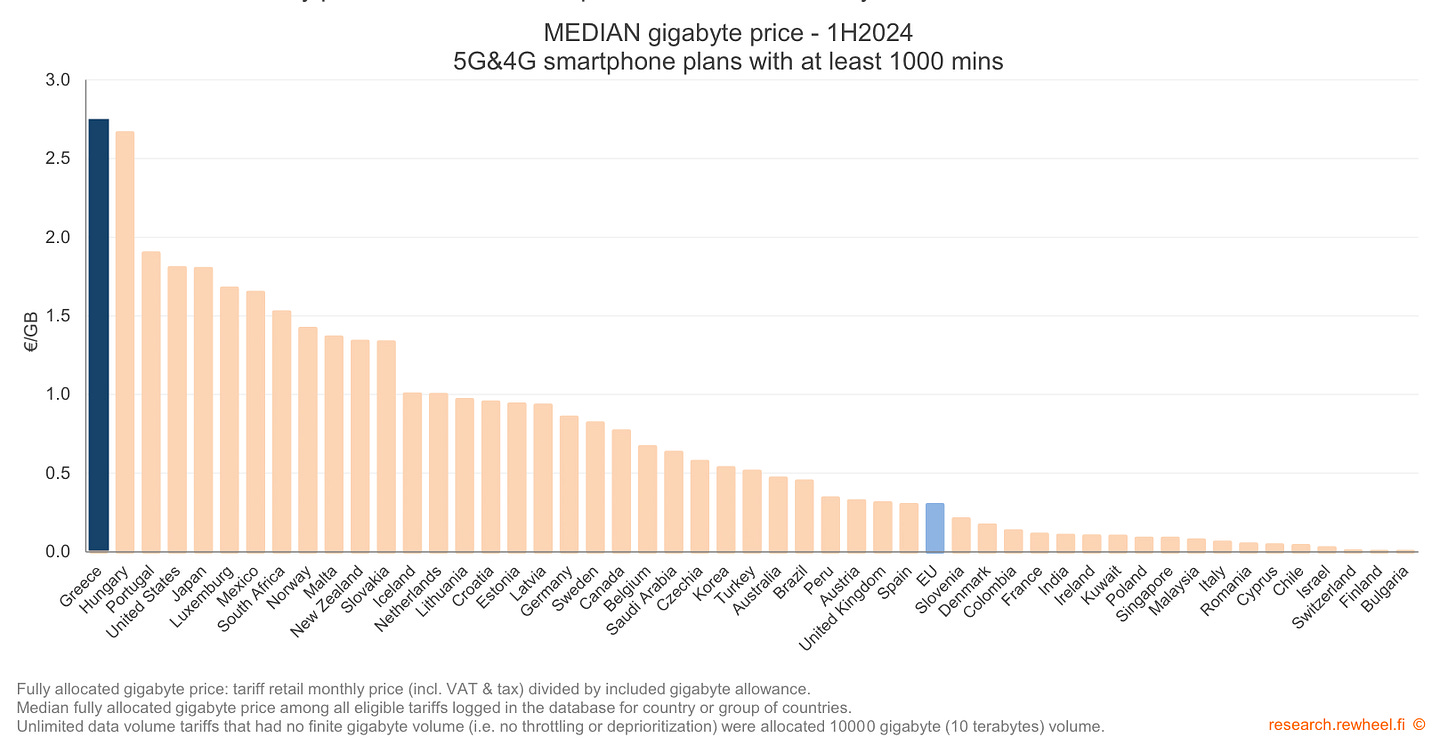
Greek mobile data is over-priced. According to a recent tefficient study for EETT: “in terms of value for money, Greece ranks weaker in data offerings compared to most of its peers.”
The average price of 1GB of mobile data in Greece is the second highest in the EU.
This number has been thankfully dropping consistently over the past 5 years, but it still remains quite far from the EU average.
Consumers in Greece also pay a hefty premium (~€50) to transition from lower/mid-level speed plans to top level speed plans, much higher than the EU average (~€10).

Another big pain point is access to unlimited mobile data. Fewer than 1 in 4 plans in Greece have unlimited data.
A pricey option for the average Greek, unlimited mobile data plans are still a rarity.
There is also a prevalent sense of anti-competitive behavior in the market, with many people talking about the cartelization of the industry.
The official regulator for all Telecoms in Greece is the Hellenic Telecommunications & Post Commission (EETT). While its reports are great (and full of amazing data), I believe it could do much more to help protect consumers and keep providers in check.
I also wonder why the Greek government initially tried to boost the Hellenic Competition Commission’s efforts in helping regulate the Telecoms market, and then went on a completely opposite direction. Hmm…
I would also want to see more creative ways of supporting consumers sustainably other than throwing out €150 million in vouchers that will directly benefit the few big players again and have questionable long-term benefits.
Quality
But it’s not just the price and speed that have problems.
For many Greeks, the overall quality of their internet services (and support of their providers) is also in question.
The most common problems pertain to internet interruption and speed slow-down.
According to a recent survey by EETT and Metron Analysis, mobile data users have an NPS of -30. If we drill down, we see that the main detractors are mobile users without unlimited mobile data (which is also the majority in Greece).

To be fair, not everyone is unhappy. If you live in a dense urban area with access to multiple providers and the option to get fiber, then you are probably pretty satisfied.
Yesterday, I asked people on twitter to share their own experience about the quality of internet in Greece and that of ISPs. I got a mix-bag of responses, ranging from unsurprising complaints to absolute delight with fast fiber connections.
All in all, a lot can be done to improve the quality of service.
The rise of Starlink
With high and consistent speeds being a luxury for most of the past decade, many Greeks (especially in isolated areas of the country) have turned to Starlink.
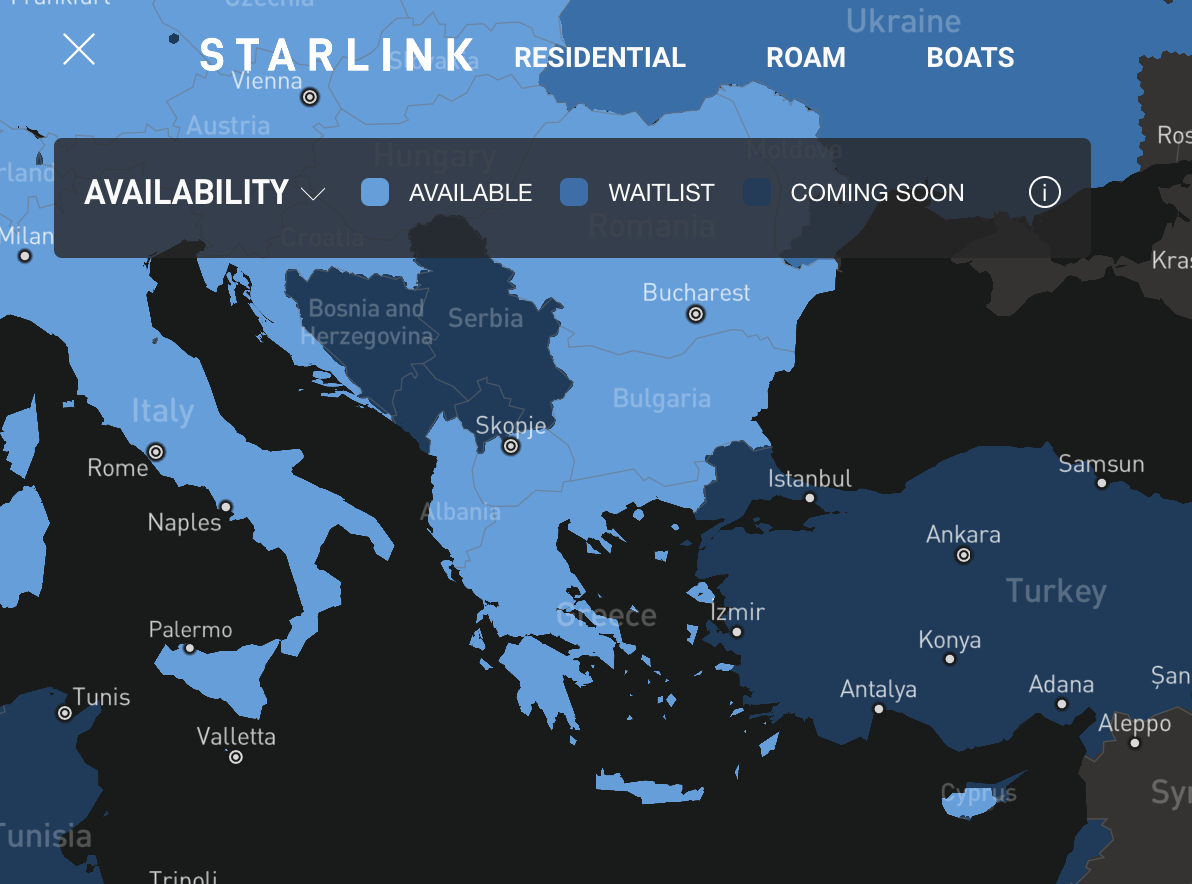
Starlink offers various service plans for individuals and businesses. While there is a big upfront cost, Starlink is gradually becoming more affordable and also a handy solution for areas that have not yet been blessed with fiber connectivity.
I am also excited about Amazon’s Project Kuiper, a similar connectivity endeavor via satellites, which uses Greece as one of the few host countries to run their network.
In a heavily oligopolistic market mostly captured by three big players, new forms of competition are always appreciated.
Conclusion
If I had to grade each aspect of internet service in Greece, I think the following would be a fair assessment:
Coverage: B+ (A+ for 5G, C for fiber)
Speed: C+
Price: D
Quality: B-
Overall grade: C
Greece has been making some progress recently, but it still has a long way to go.
We need to do much more in order to catch up with the rest of the modern world in providing a smooth, fast and affordable internet service.
Time to close the gap.
🏭 Economy & Business
Terna Energy acquired by Abu Dhabi’s Masdar in €3.2 billion deal
ION chocolate company acquires 75% of sugar confectionery leader Lavdas
Energean to sell portfolio in Egypt, Italy, Croatia to Carlyle for 900M
Greek mutual fund assets grew 5 times the EU average in 2023
Greece’s govt is planning early €8 billion repayment of bailout loans
Competitiveness is up, but hovers around same levels for 5 years
Hiring outlook is expected moderate for Q3 2024
Wages Cost Index reaches pre-crisis levels, job vacancies 15 year high
Interest rates on Greek deposits are still extremely low
🤖 Tech & Startups
Uizard (UI design) acquired by Miro for an undisclosed amount
ZeroPoint (hardware energy) raises €5M Series A round
DataForm Lab (architectural robotics) raises €1.3M in seed-funding
Tendertec (personalized care) raises €0.5M in fresh funding
Revolut bets hard on marketing in Greece, offers bonds to Greek users
EquiFund II (€200M) launches to invest in thematic funds
Genesis Ventures opens up applications for DayOne 6th cohort
Pfizer’s Start4Health is accepting applications for its incubator
Green startups helping solve the global plastic problem from Greece
Meltemi, the first Greek LLM, has an awesome team behind it
🙌 Celebrating Greek wins
Spyros Theodoropoulos has been elected new President of SEV
Christos Maravegias receives press for his top work on biofuels
Stratos Davlos was appointed on the board of UC Berkeley
Giannis Kalogirou Valtis wins a Young Investigator Award from ASCO
Elisa Konofagou featured in WSJ’s The Future of Everything podcast
Antonis Armoundas works at the forefront of cardiovascular medicine
📌 Spotlight: An Ancient Minoan Discovery
The discovery of a unique 4,000-year-old structure in Crete is the coolest and most enigmatic archaeological find we have seen in decades.
Pretty mesmerizing, don’t you think?
That’s it for this week. I always love hearing from you. Make sure to hit that reply button.
Until next time!







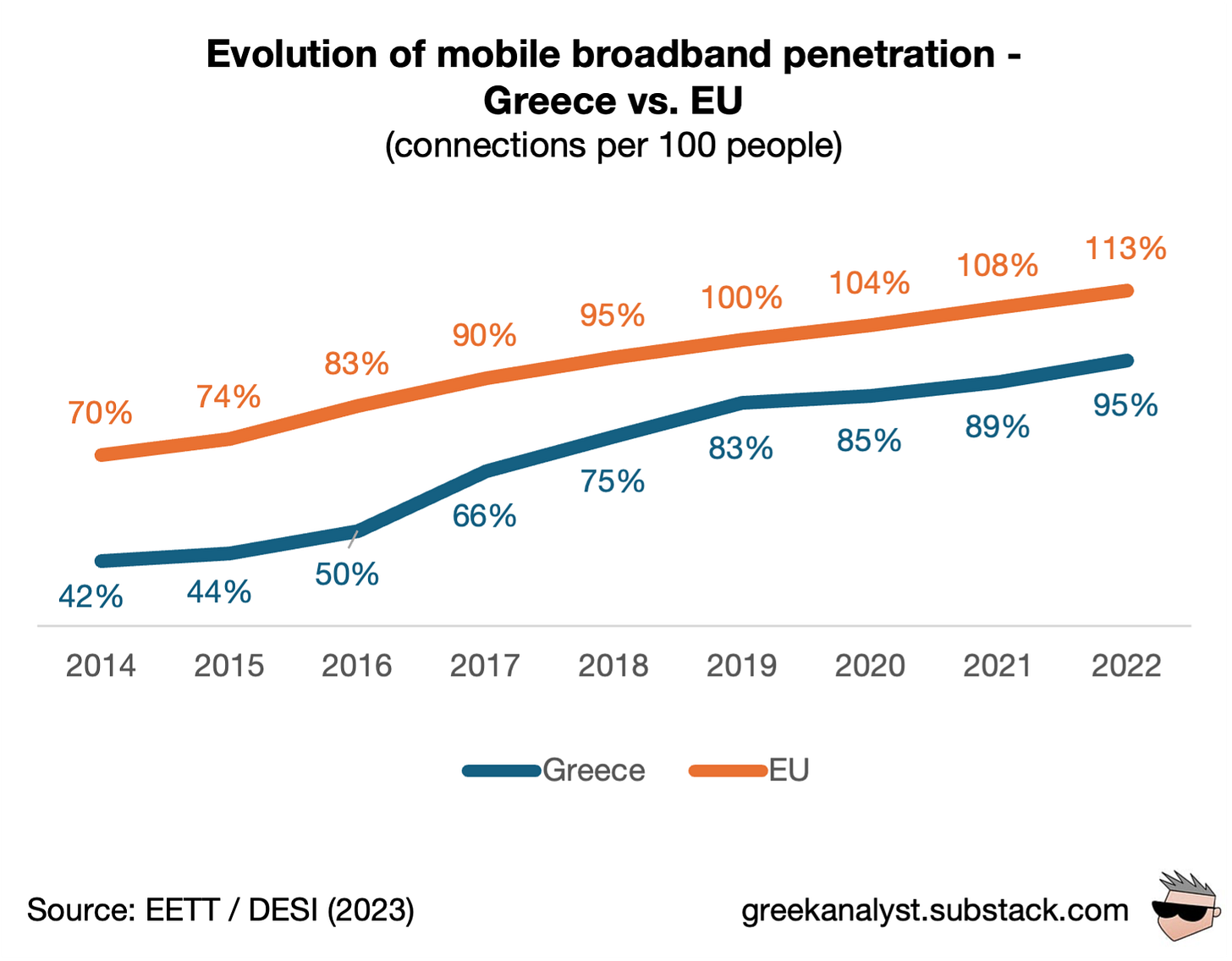







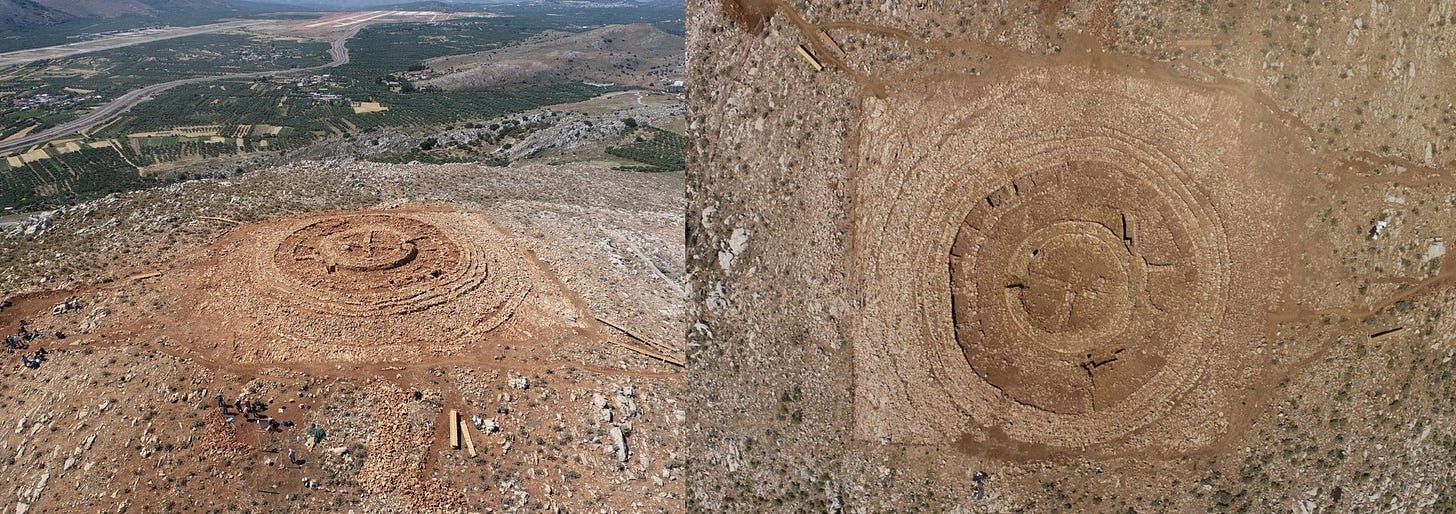
A great deep dive, thanks! I've tried to look at Portugal on the charts because I think they're doing a much better job at seizing the opportunity to attract individuals and companies. There are many other factors but Internet speed is so important for a country's attractiveness.
very nicely explained!